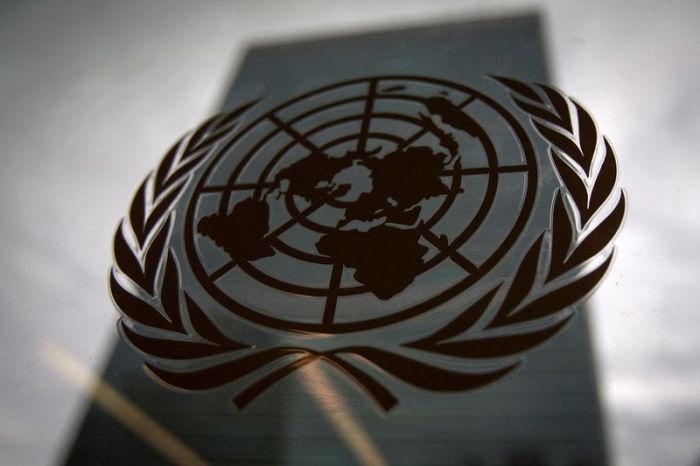WASHINGTON (Reuters) – U.S. President Joe Biden signed an executive order on Wednesday requiring the government to assess the risks and benefits of creating a central bank digital dollar, as well as other cryptocurrency issues, the White House said.
Bitcoin surged on the news as the administration’s holistic and deliberative approach calmed market fears about an immediate regulatory crackdown on cryptocurrencies. In midday trading, bitcoin rose 9.1% to $42,280, on track for its largest percentage gain since Feb. 28.
Biden’s order will require the Treasury Department, the Commerce Department and other key agencies to prepare reports on “the future of money” and the role cryptocurrencies will play.
Wide-ranging oversight of the cryptocurrency market, which surged past $3 trillion in November, is essential to ensure U.S. national security, financial stability and U.S. competitiveness, and stave off the growing threat of cyber crime, administration officials said.
Analysts view the long-awaited executive order as a stark acknowledgement of the growing importance of cryptocurrencies and their potential consequences for the U.S. and global financial systems.
“The growth in cryptocurrencies has been explosive,” Daleep Singh, deputy national security adviser for economics, said in an interview with CNN.
Cryptocurrencies and digital assets can affect how people access banking, whether consumers are safe and protected from volatility, and the primacy of the U.S. dollar in the global economy, he said.
The executive order is part of an effort to promote responsible innovation but mitigates the risk to consumers, investors and businesses, Brian Deese, director of the National Economic Council, and Jake Sullivan, White House national security adviser, said in a statement.
“We are clear-eyed that ‘financial innovation’ of the past has too often not benefited working families, while exacerbating inequality and increasing systemic financial risk,” they said.
One key objective is to redress inefficiencies in the current U.S. payments system and boost financial inclusion, especially of poor Americans, about 5% of whom do not currently have bank accounts due to high fees, one official said.
Another key measure directs the government to assess the technological infrastructure needed for a potential U.S. Central Bank Digital Currency (CBDC) – an electronic version of dollar bills in your pocket.
But it could take years to develop and introduce a “digital dollar,” administration officials cautioned on Wednesday, noting that the Federal Reserve in January had referred the issue to Congress.
Administration officials said the United States was taking great care to decide whether – and how – to move forward with developing a digital dollar, given the dollar’s role as the world’s primary reserve currency.
“We’ve got to be very, very deliberate about that analysis because the implications of our moving in this direction are profound for the country that issues the world’s primary reserve currency,” one of the officials said.
The order also encourages the Federal Reserve to continue research and development efforts.
Nine countries have launched central bank digital currencies, and 16 others – including China – have begun development of such digital assets, according to the Atlantic Council https://www.atlanticcouncil.org/cbdctracker, leading some in Washington to worry that the dollar could lose some of its dominance to China.
The U.S. dollar remains underpinned by key fundamentals, including a commitment to transparency, the rule of law and the full independence of the Federal Reserve, the official said.
“The dollar’s role has been and will continue to be crucial to the stability of the international monetary system as a whole. Foreign central bank digital currencies and their introduction by themselves do not threaten this dominance,” the official said.
Asked whether China could develop a competitive advantage if it moved sooner, one administration official said U.S. officials would monitor developments with an eye to maintaining the centrality of the dollar in the global economy.
The order asks for over a dozen reports, including by the Securities and Exchange Commission and the Consumer Financial Protection Bureau, to assess issues raised by cryptocurrencies, including systemic risk and consumer protection.
One key objective is to redress inefficiencies in the current U.S. payments system and boost financial inclusion, especially of poor Americans, about 5% of whom do not currently have bank accounts due to high fees, an official said.
Industry executives, including Blockchain Intelligence Group’s chief Lance Morginn, called the order shortsighted as it replaces industry request for a more broad U.S. embrace of crypto with more analysis and reporting.
“We’re at a pivotal time in history where the world is watching how digital assets are being used in nation-building and how digital assets are creating transparency into financial transactions like never seen before,” Morginn said.
“If the U.S. government takes too long to adopt policies toward digital assets, they run the risk of the industry moving to other financial capitals that are prioritizing blockchain technology.”
Chairs of financial regulatory agencies, including the CFPB and the SEC, welcomed the move and said they would fully comply.
(Reporting by Andrea Shalal and Katanga Johnson; Additional reporting by Doina Chiacu; Editing by Michelle Price, Simon Cameron-Moore, Mark Porter & Shri Navaratnam)


























